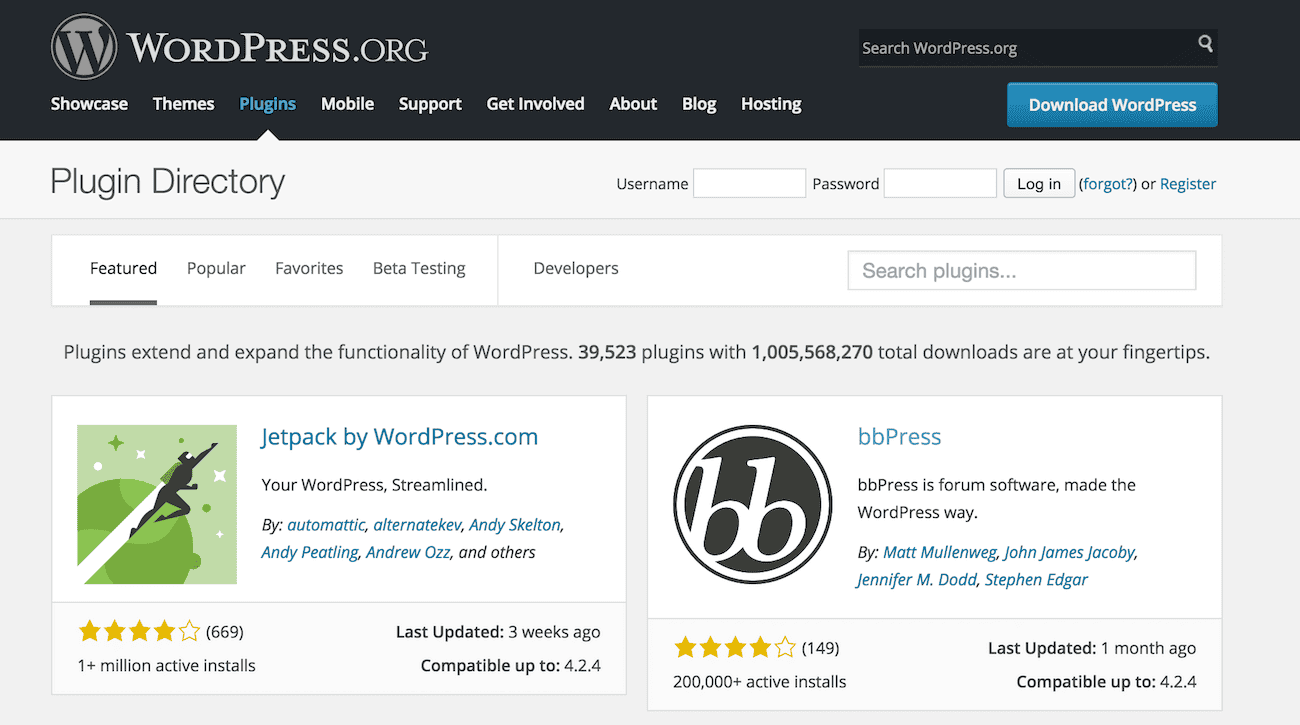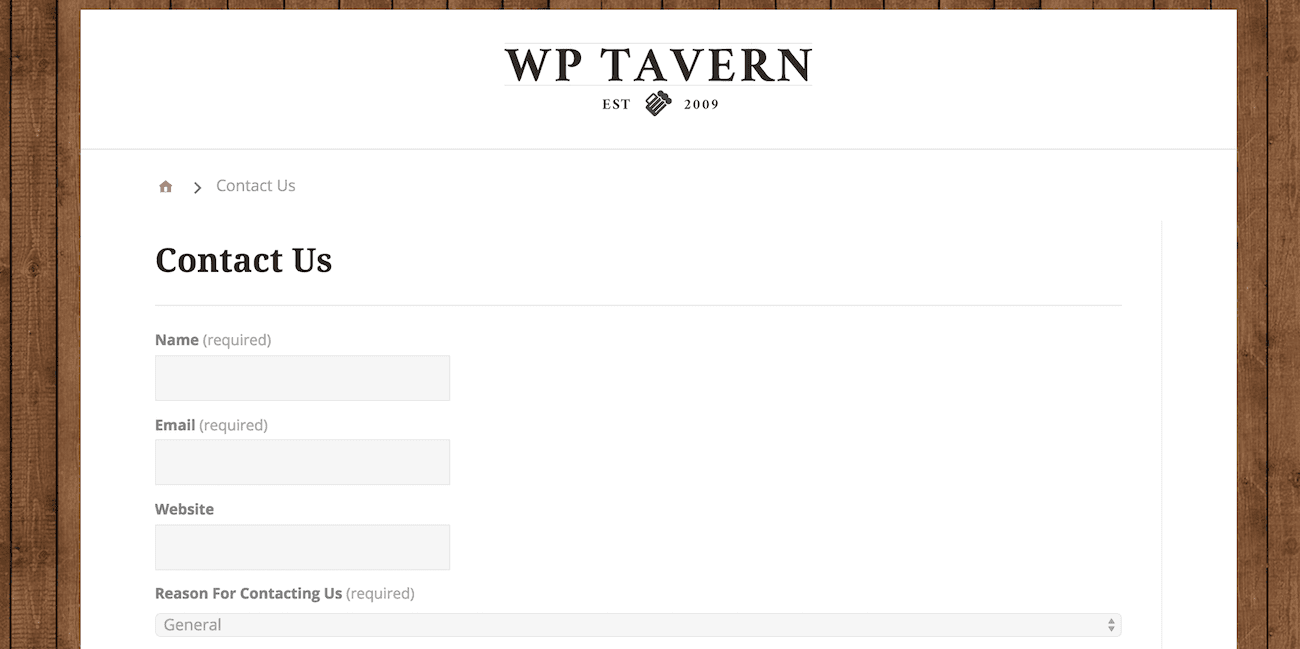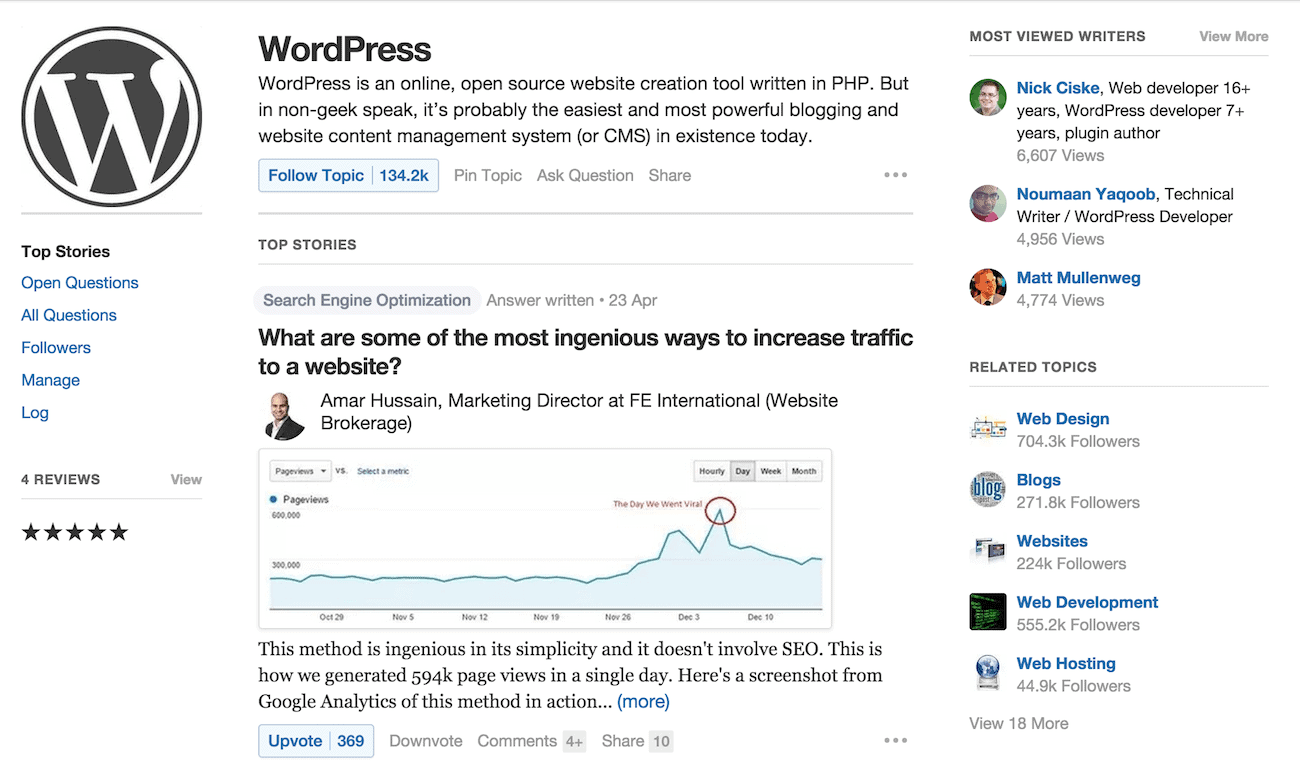|
|
You’ve done it: You’ve written a WordPress plugin that addresses the most (Word)Pressing problem ever. Now, here’s the kicker: No matter how much time you’ve invested or how brilliant it is, your target audience will never know about your plugin unless it gets online press.
With the above in mind, here’s an eight-pronged approach to getting blog authors to sit up and take notice of your WordPress plugin.
1. Define What You’re Offering
Before you unveil even a bracket of code to the world, you should be able to communicate precisely and succinctly what your WordPress plugin does, and how. To that end, develop an “elevator speech” – a very short blurb that encapsulates:
- What problem your plugin solves.
- What makes it different from other solutions.
- What kind of site is likely to need it.
Knowing the answers to these questions will help you craft the required message for the approaches below.
2. The Broad Approach: Submit Your Plugin to WordPress.org’s Repository

This one isn’t optional, as the repository is generally the first place developers look for WordPress plugins they trust.
To be listed in the repository, your plugin must pass a review process that ensures it adheres to a few guidelines – mainly that it’s not spammy, doesn’t contain objectionable code, and falls under the correct GNU license. The process is simple, and the review is typically carried out within a few days of submitting (if not sooner).
Don’t stop there, though. At the time of this writing, WordPress.org’s repository hosts nearly 40,000 plugins, and you’ll need the attention of bloggers to help it stand out.
3. The Direct Approach: Simply Ask Bloggers for a Review
Writers who specialize in WordPress-related content are always on the lookout for the next big thing, so they welcome news about WordPress plugins, themes, etc. Asking an author or blogger to review your plugin is viewed as a respectful nod to his or her expertise, so don’t be shy.
Remember, a good pitch:
- Is friendly, not demanding.
- Reflects the WordPress community’s reputation for helpfulness above self-interest.
- States the problem your plugin solves and how it does so.
- Includes a very brief bio and your contact info.

Just a small sampling of the most widely read and respected blogs includes:
4. The Conversational Approach: Talk About Your WordPress Plugin (Almost) Every Chance You Get
Go where WordPress bloggers go. Join forums and groups they tend to frequent. Comment on relevant blogs. And when you do, think first about what you might contribute; not what you may gain. That’s the WordPress way, after all: help first, and promote second (and then, only where it’s appropriate). And be subtle about it.
For example, if someone asks for help with the problem your plugin addresses, it’s fine to mention your plugin when you respond with some pointers. However, you should never, ever simply post links to it where it’s not appropriate. We see this often, and it’s tacky. It doesn’t work either.
5. The Social Approach: Take to Twitter, Facebook, LinkedIn, Et Al
Get systematic with your social media marketing. Develop a series of short messages that help with the issue your plugin focuses on, and use relevant hashtags. Again, help comes first, promotion later. You can also search for conversations already happening using those hashtags, and chime in with your thoughts.
Add a link to your plugin to all your social media profiles, too. This is particularly effective if you already have a good reputation in the WordPress community; people trust a known quantity.
6. The Write Approach: Craft Posts for Your Own Site (Or Hire Someone Who Can)
If you have a website and blog (you do, don’t you?), get writing. Any topic that’s WordPress-related is fine, as long as you actually offer something beneficial to the reader. You’ll build up credibility in the community, and your plugin’s popularity can feed on that.
Whenever you post something new (or want to call attention to an older post), post it on Twitter, mention it on LinkedIn and link to it from Facebook.
Another approach you could explore is press releases. Submit them to news/information aggregators like PRNewswire and others. Some are free but others you need to pay for, so assess the potential ROI from paying for press releases.
7. The Backward Approach: Find Your Users
Another way to get to WordPress bloggers is through people likely to use your plugin. Try posting answers on Quora and starting new threads on Reddit, for example. Follow relevant subreddits and groups, and contribute to the conversations.

This may sound counterintuitive; after all, why would you need to reach bloggers at all if you can bypass them and address users directly? It’s simple: Effective methods and innovative hacks can go viral. Users who like your plugin may comment about it on blogs, which in turn can generate buzz that WordPress authors want to explore.
8. The Stealth Approach: Scope Out Blog Authors
This isn’t as nefarious as it sounds. Just get into the habit of checking the about page, press kit and contact pages (footers, too) on the WordPress blogs you like to read. You may find story submission forms and directions, email addresses, social media links and handles, and other information meant to help you communicate with authors.
It does no harm to reach out to authors on WordPress blogs, but make sure you don’t come across as too pushy.
Get Plugging Your WordPress Plugin!
Whatever methods you use, keep one word in mind: Benefit.
Whenever you discuss your plugin, focus on how it can benefit its users. We’re sure you’re a great developer with years of experience and stellar coding skills, but all that busy WordPress user wants to know is if and how the plugin can help them. Answer that question whenever and wherever you can, and you’re golden.
Have any more suggestions for generating plugin buzz on WordPress blogs? What’s worked and failed for you? Tell us in the comments!








Hey Tom, a great post indeed. I only wish I could create my own plugin (unfortunately the ability eludes me) however I'd like to throw my hat in the ring so to speak, always looking out for new plugins to reveiw!!!
Hey Ben,
Developing a plugin isn't hard as you imagine. Just take an existing plugin and try to "play" with the code and make some changes. I'm sure you'll quickly get the logic behind the things.
With regards to reviewing plugins, it would be great if you could review our own plugin, RatingWidget (https://wordpress.org/plugins/rating-widget/). Feel free to ping me via [email protected] if you need any additional information.
Hi Vova,
Will drop you an email!
what are the most common wordpress related forums that you suggest to post at?
Hi John,
The WordPress forums themselves are a great place, along with the newly revamped WPChat forum.